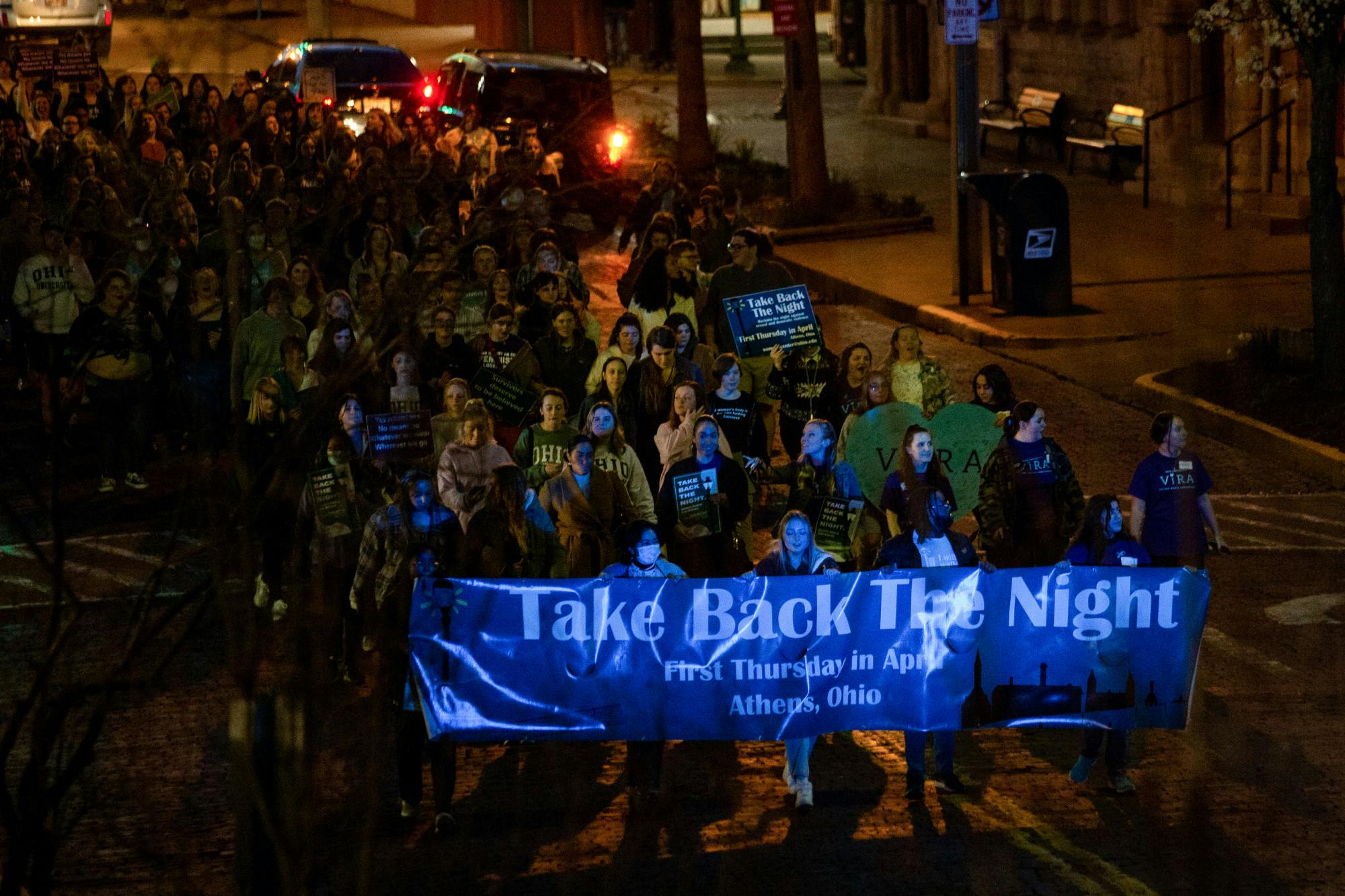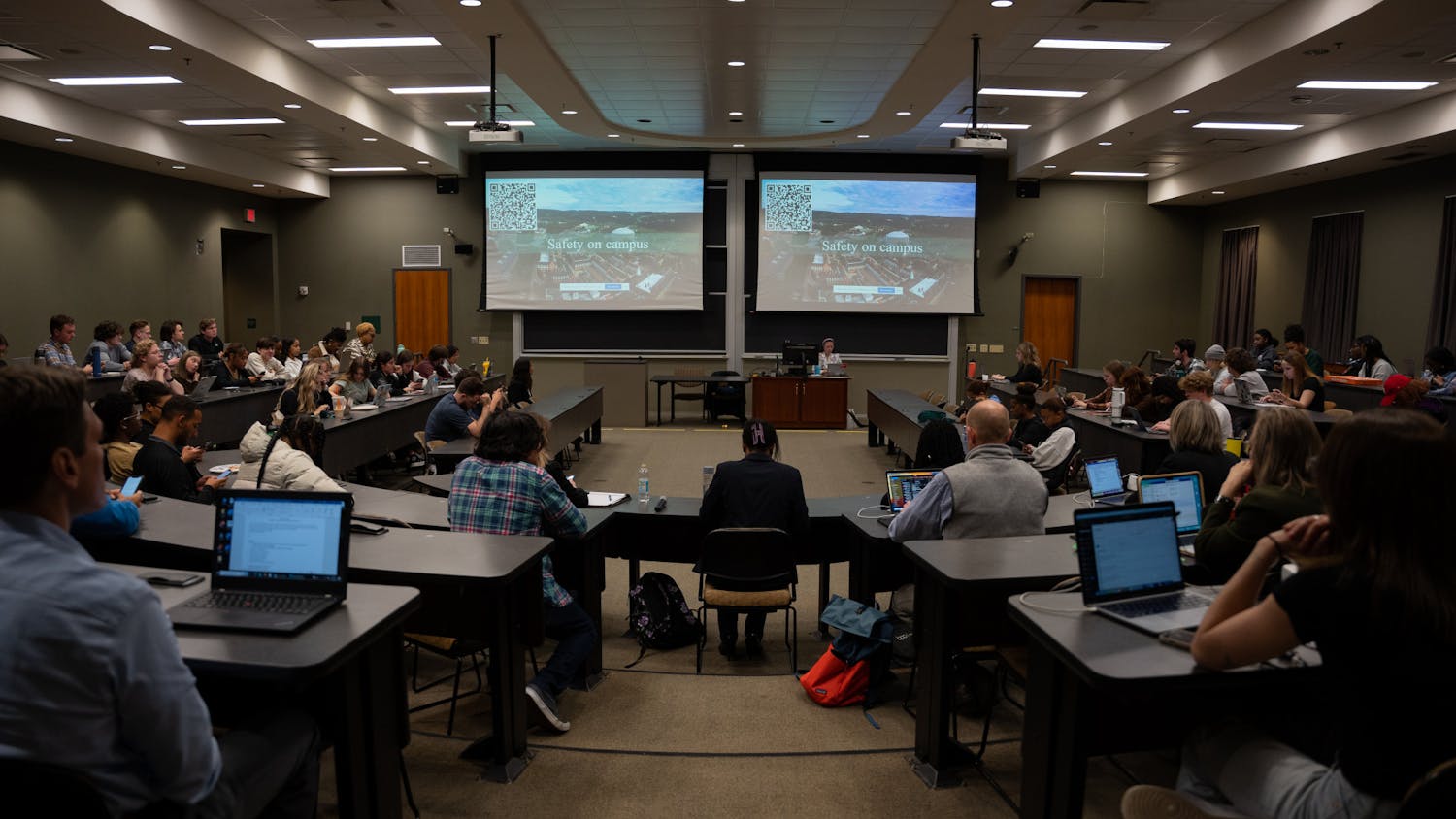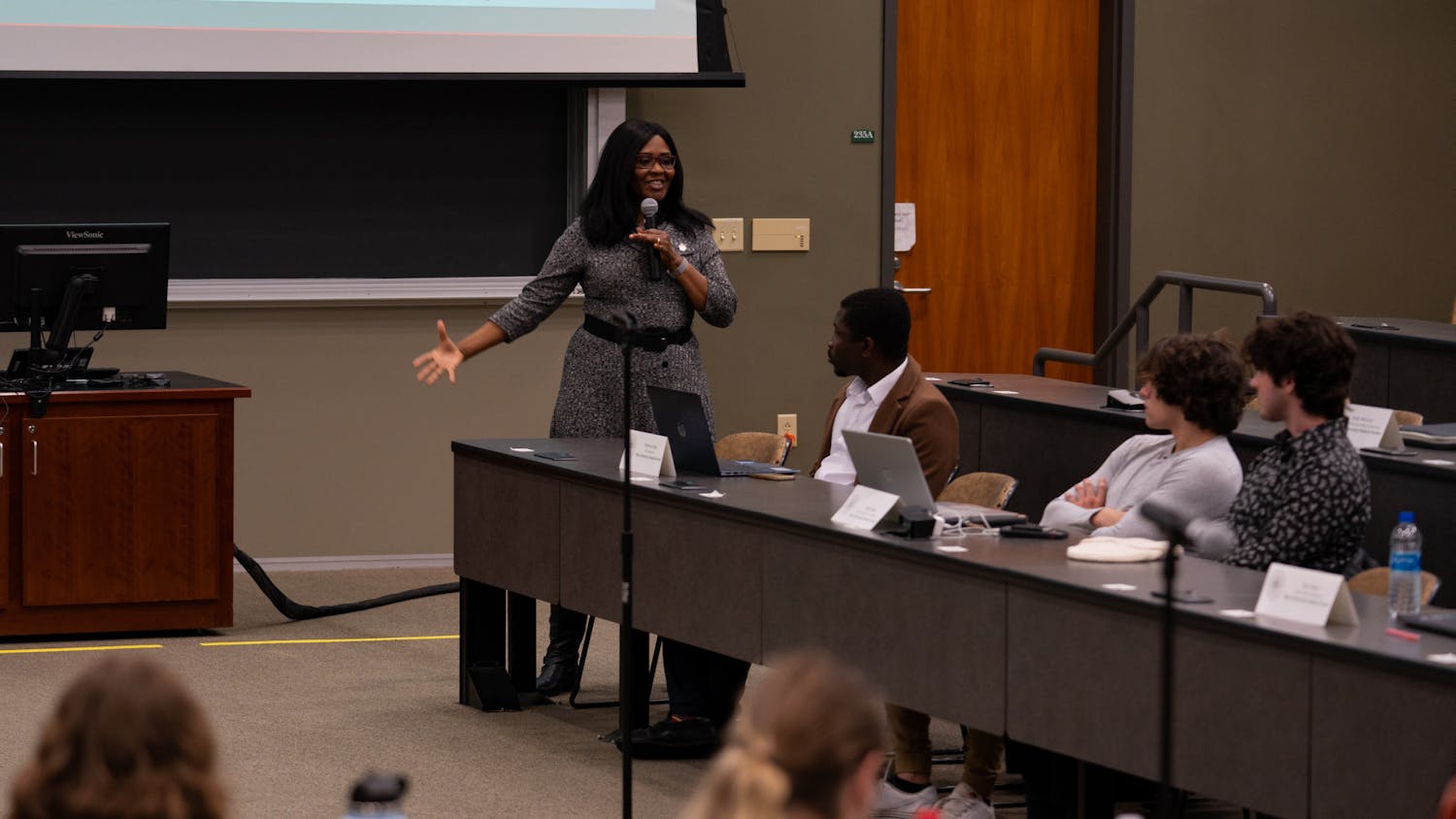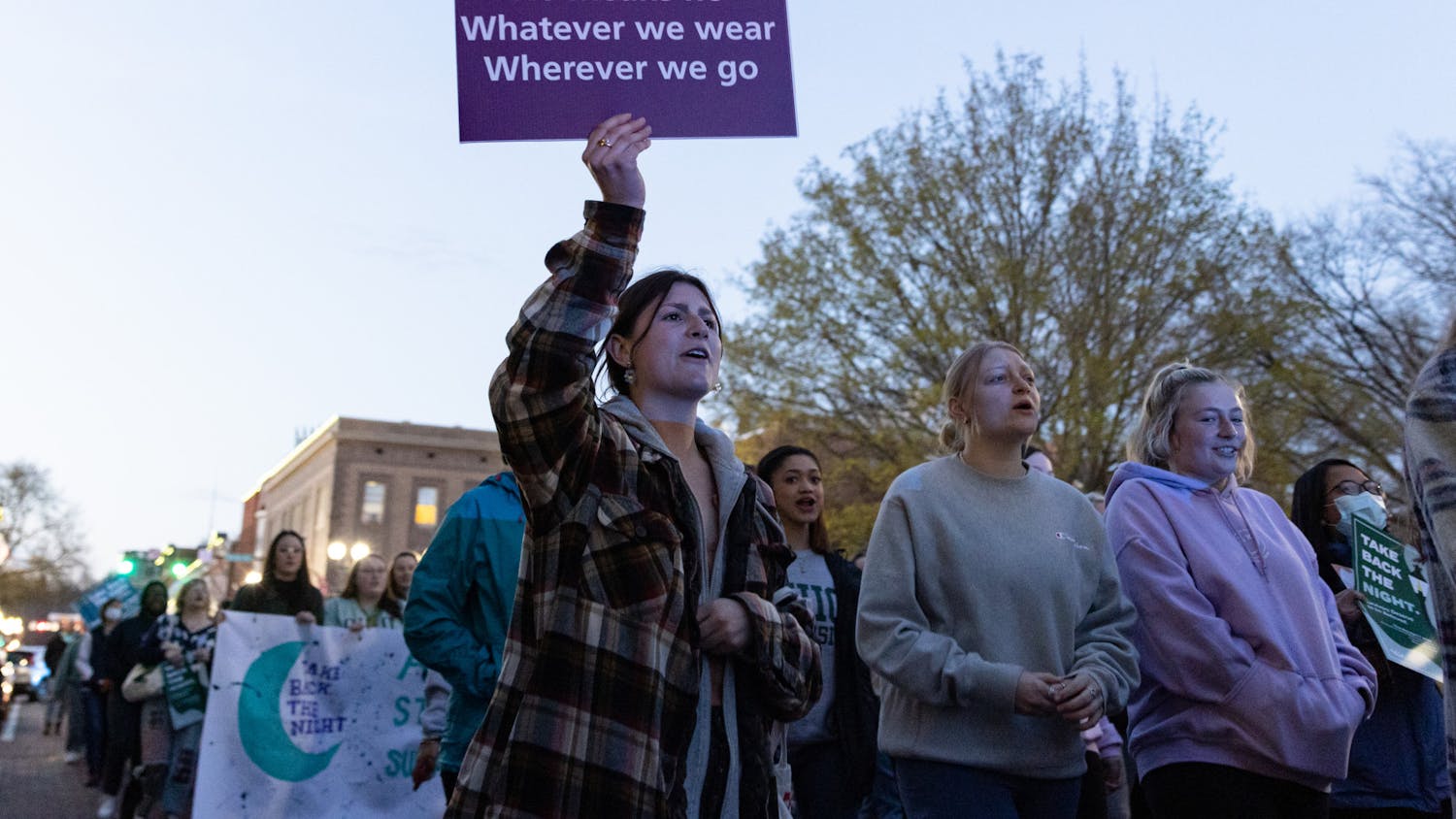Jack Solon | For The Post
Ohio University students received an email from the Ohio University Police Department on Jan. 24. A strangulation had occurred outside of Tiffin Hall three days prior to the email, during the early hours of the morning.
Around a week later, on Feb. 2, OU students would receive another email from OUPD, this time for a rape. The rape occurred in the early hours of the morning on Jan. 28, also due to the survivor being followed back to her residence hall.
The incidents shrouded the start of the spring 2023 semester in fear and questions. It also served as a catalyst to push students to be aware of the resources available to them on campus.
Although the two incidents OUPD emailed OU students about were enough to spark worry among the student body, they are only a fraction of the total number of incidents. For many survivors, the hardest step is coming forward with their experiences. The Survivor Advocacy Program, or SAP, aims to address this.
SAP
Kim Rouse, director of SAP and three-time OU graduate, said some survivors don’t even register what happened to them as a crime at all.
“With sexual assault, it’s often somebody that you know that hurt you, and that can be really confusing to conceptualize, like, ‘This person I knew and I trusted wouldn’t have done this to me, I must be taking this the wrong way,’” Rouse said. “Then they start questioning their own reality and whether or not it even was a crime worth reporting.
Rouse also said a prominent barrier to entry into SAP is survivors being uncomfortable with the idea of sharing their stories with multiple different people and needing to relive them. However, Rouse said SAP never asks directly what happened to the client. SAP instead begins by walking a client through its process and explaining available options.
“We don’t need to know all the details of an assault in order to help someone, so we get enough information to be able to talk through their options,” Rouse said. “We really need to know what’s happening now and how it’s impacting you right now because that will help us know how to best support them.”
Rouse said safety planning is among the most critical things SAP discusses with new clients because the most dangerous time period for a survivor is the time immediately after reporting an incident.
SAP can offer alternative housing options arranged through OU’s Housing and Residence Life department. Student Legal Services can also negotiate a contract with a landlord if it becomes necessary or if the client feels uncomfortable or unsafe living on campus. Furthermore, academic support is offered through the Academic Achievement Center.
Rouse said SAP had 121 clients in the fall 2022 semester. Of those 121 clients, 72 were new clients. She added, of those 72 new clients, 13 of them reported their cases to University Equity and Civil Rights Compliance, which handles Title IX-related cases and 19 reported their case to law enforcement while they were seeking services with SAP.
Rouse said SAP has a much simpler time connecting clients with resources directly on campus such as aforementioned on-campus housing options as well as counseling. Some counselors have also begun creating a program specifically for survivors of sexual violence.
Eileen Marsal Koch, senior counselor of Counseling and Psychological Services, or CPS, said she and a doctoral intern of CPS have started an initiative called HOPES, which stands for Healing, Opportunity, Purpose, Expression and Support.
HOPES
Koch said HOPES focuses on helping survivors by teaching them coping skills in the here and now. She said it is important for survivors to be in charge of what they share and how much, as well as teaching skills to combat flashbacks.
“We have them put together a coping container, and in that container are all kinds of things that they can use to bring them back to the present,” Marsal Koch said.
However, as Rouse also noted, many survivors do not acknowledge or seek help after their experiences. Koch cited stigmas around coming forward with one’s experience as a major factor in preventing someone from seeking counseling, and said such thoughts are unhealthy.
“What I always tell students is when we try to suppress trauma and not talk about it and not deal with it, it stays in the cells of our bodies, it’s not going anywhere,” Marsal Koch said.
Unfortunately for many survivors stigmas often prevent them from reaching out for help, sometimes for decades at a time.
“Prior to coming to OU, I worked with a community mental health center up in Cleveland, and I had a woman that I met when she was 40,” Marsal Koch said. “I think I was working with her for at least six to eight months before she ever told me that she had a history of sexual assaults, a pretty severe history, and she said to me, ‘I’ve never told anyone in my life.’”
Koch said events like Take Back the Night, an event held in Athens every year which features multiple guest speakers and a march, are crucial to de-stigmatize sexual assault survivors encourage survivors to come forward. This year’s event took place on April 6.
Student Senate initiatives
Take Back the Night is a national event, but on OU’s campus, it is put on by the Women’s Center and Student Senate. Megan Handle, a rising senior studying social work in the honors tutorial college, serves as Senate’s Women’s Affairs Commissioner and was elected president for the 2023-2024 academic year.
Handle said while the Senate has not passed direct legislation pertaining to sexual violence, the Women’s Affairs Commission held a tabling event outside Baker University Center on April 3, where Handle and others in her commission gave out “Safer Sacks.”
“Safer Sacks” were an initiative by Handle and her commission to give out tote bags containing safe-sex products including condoms, dental dams, lube, personal safety alarms, cup scrunchies meant to prevent drinks from being spiked and informational cards about the Plan C abortion pill.
Handle said the initiative was also an opportunity to inform students about safe-sex practices and sexual health.
“We had all of the information about what the stuff is; some people don’t know what dental dams are,” Handle said. “So we did a lot of educating in that manner.”
Handle’s commission also has conducted resource fairs where more informational cards were given out, which included the phone number for the National Assault Hotline, and other trinkets like stickers with messages meant to de-stigmatize sexual assault and unhealthy societal beliefs about sexual health.
“We had stickers like a little pink card that said ‘Consent is mandatory,’ and another that had ‘Boys will be boys’ crossed out and replaced with ‘Boys will be held accountable for their actions,’” Handle said.
Handle also said she does work outside of her commission to support survivors while doing work for her social work major. She said her awareness of resources available for survivors on campus and her role in the Senate have helped her be a better advocate even outside of student government.
“I’ve helped people report and helped people go to the police … so not only am I aware of the resources because of my role in Senate, but it’s something I’m very passionate about,” Handle said. “A lot of that trauma is very intersectional with the population that uses our services.”
While de-stigmatization of sexual assault survivors is a key step to preventing future abuse, Handle’s role in helping people get in touch with the resources available to them in the first place can be seen on a broader scale through the Green Dot training program.
Green Dot
Green Dot serves to train people to be proactive bystanders in a potential instance of interpersonal violence, according to the university’s website.
Ann Brandon, associate director of prevention and education for the Office of Health Promotion, said the program helps implement change in a better way than simply raising awareness.
“It gets people connected to the issue in a different way,” Brandon said. “It focuses on bystanders and specifically leaders. So, the difference is we train people who will be at the intersections of when violence happens.”
A study of Green Dot across three college campuses conducted by the University of Kentucky between 2010 and 2013 indicated that the campus using the program had fewer instances of violence than the two comparison campuses without it, which Brandon said is an anomaly compared to other programs. Violence rates were found to decrease in males after the implementation of the program as well.
Brandon said Green Dot was implemented on OU’s campus in the fall semester. She said the goal of Green Dot is to normalize action against instances of violence through top-down training.
“The reason why we use student leaders is because we can't train 25,000 people,” Brandon said. “Green Dot uses what's called social diffusion theory and that means if I train leaders like someone in Student Senate, or fraternity or sorority leaders if somebody else sees them step up, and that makes it normal.”
Brandon said Green Dot will take three to four years to fully implement on OU’s campus.






